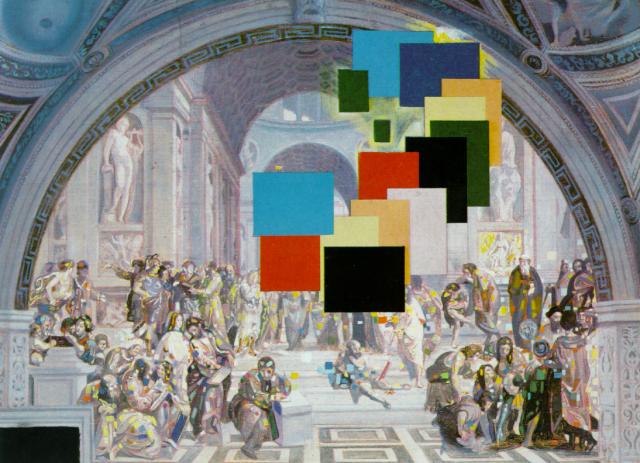Blueprint 1543 is heavily invested in promoting science-integrated theology. But why do we care so much about theology? It is tempting to think that, in our contemporary age, theology doesn’t have much to contribute anymore. Those of us who are people of faith might think that, for the most part, theology was settled centuries ago, and so there isn’t much work for theologians to do anymore. New discovery and progress in understanding life, the universe, and everything will come from other intellectual pursuits such as the sciences. Those who are not people of faith may discard theology as something that isn’t relevant to the pluralistic world we now live in. We need insights and truths that apply to everyone and not just those who subscribe to particular religious commitments. And so, it is easy to think that theology is an intellectual activity that is marginal (at best) to contemporary concerns.
I used to think like this. It was one of the reasons that I decided to pursue advanced education in psychological science and not theology, but I now realize that such a view is mistaken. My fundamental mistake was a misunderstanding of what theology is. Once we see more clearly what theology is — or at least what theology could and should be — it is fairly obvious that not only do we still need theology but we will never not need it.

Theology is (1) the reflective, intellectual study of the divine, and how all things – including their nature, purpose, and flourishing – relate to divinity, and (2) the communication of the resulting understandings to relevant audiences. “Divinity,” here, indicates the ultimate reality (or those ultimate realities) that transcend the mundane and gives meaning and purpose to life. “Theology” of this sort can be a broad, synthesizing intellectual project of people of various religious traditions or none. As leading theologian Alister McGrath argues in his book Return from a Distant Country (Fortress Press, 2022):
Theology, as I understand it, publicly articulates and defends an intellectually and imaginatively compelling vision of reality. (p. 72).
The aim of theology is to provide a comprehensive, coherent, and meaningful worldview that can guide and motivate human lives, individually and collectively. Theology arises from and shapes lived experiences, for individuals and communities. For theologians working in a specific religious tradition, part of their role is to help adherents make meaning from the world, themselves, and their flourishing distinctively in light of their relationship with the divine in a particular time and space. As cultural conditions change, as new technologies are manufactured, as new problems arise, new theological insights are needed.
As meaning-making animals, we humans seem almost destined to generate folk “theologies” to justify values and give purpose and coherence to our lives. We may call these frameworks ideologies or philosophies, and may find them infusing the scholarship in many different disciplines across contemporary universities and punctuating popular discourse as well. But insofar as these attempts at seeing and synthesizing the world appeal to transcendent, non-negotiable, realities that we hold as set apart non-negotiables or sacred, they are theologies.
The attempt to theologize to some degree is a common impetus in people. And so, without carefully-worked out theologies being communicated effectively and internalized, individuals and communities are likely to adopt incomplete, vague, and inconsistent folk theologies. Without well-developed theologies, individuals and communities will likely be easily manipulated and controlled by cultural forces and bad actors, both insiders and outsiders. Good theology, then, is a critical resource for stable societies and thriving lives. From Yale theologians Miroslav Volf and Matthew Croasmun’s perspective:
As an intellectual endeavor, theology matters because it is about what matters the most for human life. Theology worth its name is about what we ought to desire above all things for ourselves and for the world, about what we should desire in all the things that we desire (whether our desire is effective economic systems and just political orders, livable cities and deep friendships, possessions or lack thereof, healthy bodies and joyous progeny, …). Theology matters because it is about the true life of the world. (For the Life of the World, 2019, p. 6).
Theology such as this isn’t just relevant for scholars or religious leaders, but for all people – including scientists.
-JB

